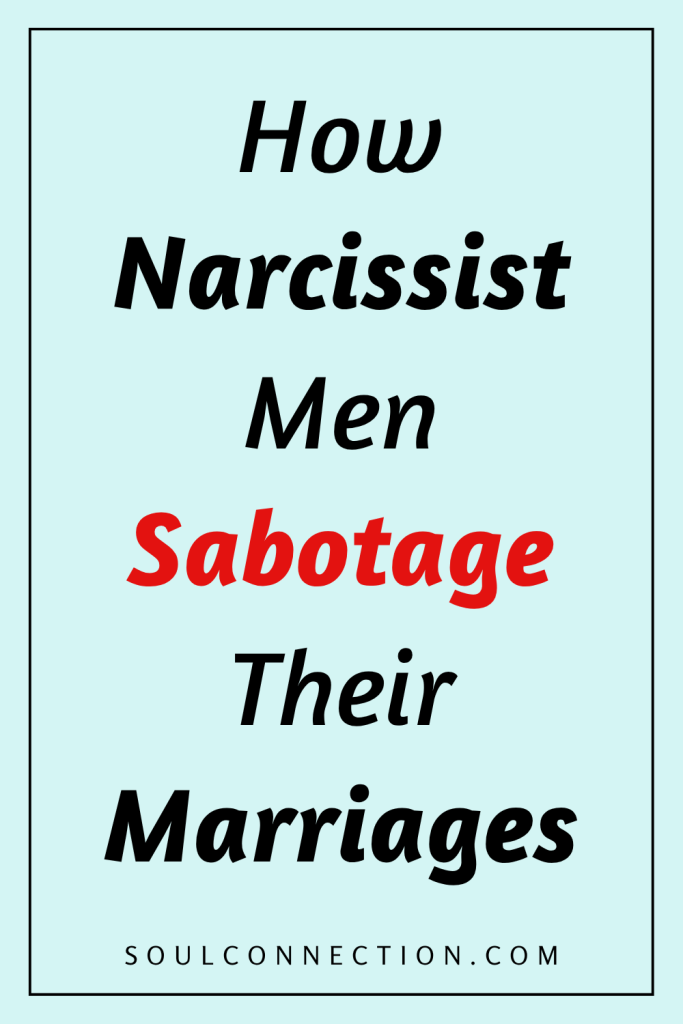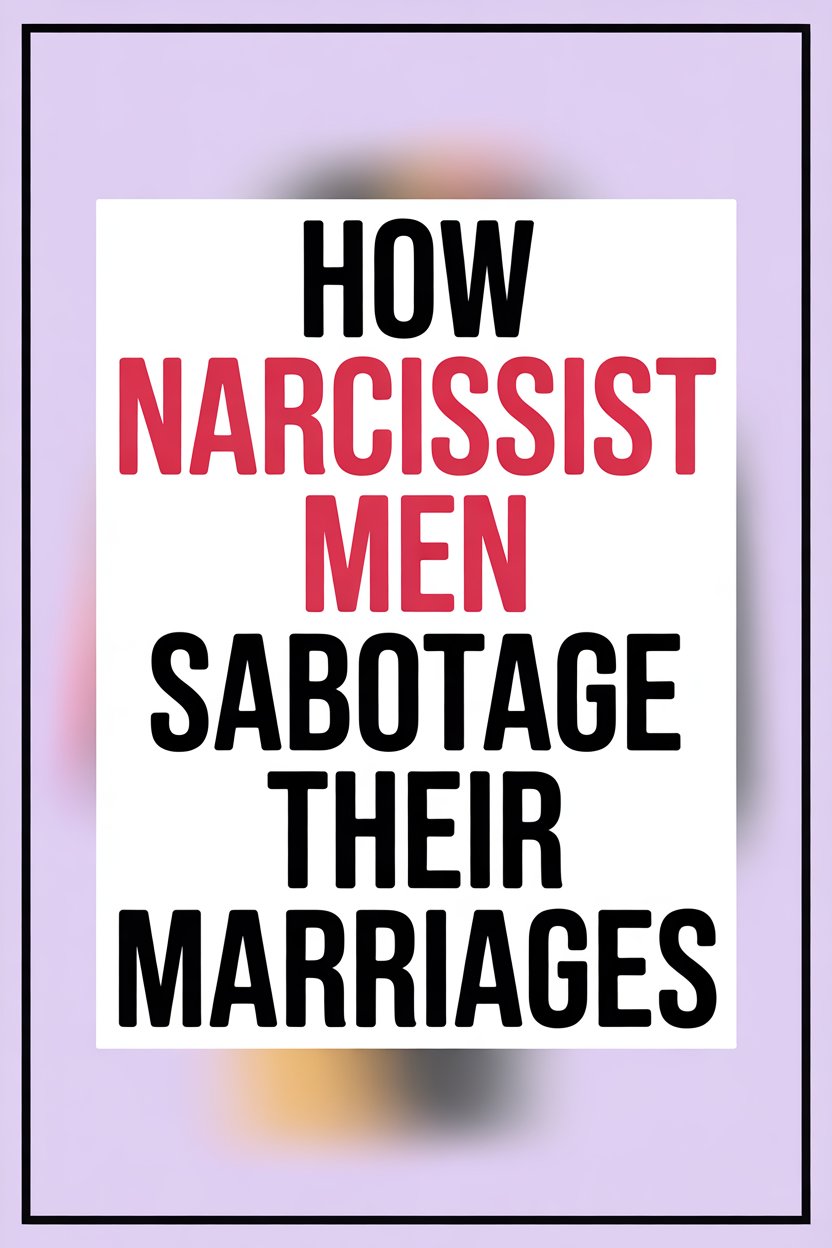Marrying a narcissist is a bit like moving into a house where every mirror is a funhouse mirror—distorted, confusing, and somehow always making you question whether your nose was always that shape.
At first, narcissist men can seem charming, confident, and attentive, but somewhere along the road to forever, the magic act falls apart.
Suddenly, the relationship feels less like a love story and more like a high-stakes game where the rules change whenever the “main character” feels like it.
Pull up a metaphorical chair. Let’s unpack why marriages with narcissist men so often end up feeling like a one-sided wrestling match, and what, if anything, you can do about it.
Emotional Manipulation Wearing a Three-Piece Suit
Narcissist men don’t just gaslight; they install whole new lighting fixtures.
Conversations with them become master classes in circular logic—one minute you’re explaining why their actions hurt you, and the next, you’re apologizing for even daring to bring it up.
The emotional manipulation is subtle at first. It’s the “I’m only telling you this for your own good” after an underhanded insult. Or the way they turn a simple disagreement into a referendum on your sanity.
Over time, your confidence quietly exits stage left, and self-doubt becomes the new house guest who never leaves.
The Gold Medal in Blame-Shifting
If passing the buck were an Olympic sport, narcissist men would have their own podium.
Any issue—big or small—gets magically spun until it’s your fault. He’s late for dinner? Clearly, you should have sent him a reminder. He forgot your birthday? Maybe if you hadn’t been “so obsessed” with birthdays, this wouldn’t be a problem.
The end result? You start believing you’re the tornado swirling through the relationship, even as he stands in the eye of the storm, looking completely unruffled.
This constant blame-shifting sabotages any chance at mutual growth, because—let’s face it—one partner is carrying the weight of two.
Withholding Affection Like It’s an Endangered Species
One minute, affection flows like cheap wine at a wedding. The next, you find yourself longing for the emotional equivalent of a text back.
With narcissist men, love and approval become currency, and the exchange rate depends entirely on how well you’re fueling their ego.
This isn’t accidental. It’s a tactic—one that keeps you chasing their approval while they sit comfortably atop their throne of indifference. Before you know it, you’re working overtime for scraps of attention that used to come freely.
It’s exhausting, demoralizing, and quietly erodes the intimacy that should be the heart of a marriage.
Playing the Victim at Tony Award Levels
“Why are you always attacking me?” he sighs, after you dare to express a need or boundary. Narcissist men are maestros at flipping the script—they manage to turn reasonable discussions into dramatic monologues about their own suffering.
Here’s the real kicker: this role reversal leaves you feeling guilty for even minor grievances. The relationship morphs into a stage where his pain is the main event and your feelings are relegated to walk-on status.
Marriage becomes a one-act play with a very tired supporting cast.
Grandstanding and Public vs. Private Personas
Ever noticed how narc men play “loving husband” like it’s their day job—around friends, family, or anyone who might be handing out a medal? But when the audience goes home, the mask slips.
Suddenly, those grand declarations and public displays of affection evaporate, replaced by indifference or even disdain.
This public/private split creates a confusing paradox: outsiders see the highlight reel while you’re stuck with the blooper reel.
When you try to explain, you end up sounding like you’re auditioning for the role of “ungrateful spouse” in a Lifetime movie. Gaslighting, party of two.
Undermining Boundaries with Olympic-Level Persistence
Boundaries are to narcissists what garlic is to vampires. No matter how clearly you lay out your needs, they find a way to trample over them. Set a limit? Suddenly, you’re “too sensitive” or “controlling.”
Every time you try to assert yourself, you’re met with pushback, ridicule, or outright defiance. After enough rounds of this, you start chipping away at your own boundaries just to keep the peace.
Spoiler alert: peace never comes. Just a slow, steady erosion of your sense of self.
Exploiting Vulnerabilities for Sport
Narcissist men have the uncanny ability to remember the one thing you said in passing three years ago and weaponize it at just the right moment. Your insecurities aren’t just remembered; they’re stockpiled for future skirmishes.
Arguments suddenly veer off into deeply personal territory. That thing you confided in him about your childhood? Fair game in a disagreement about laundry.
It’s weaponized intimacy—using your trust as ammunition rather than protection. No wonder trust becomes nearly impossible.
Stonewalling and the Art of Emotional Disappearance
When confrontation arises, some people talk it out. Narcissist men, on the other hand, take the scenic route: stonewalling. Silence, withdrawal, the cold shoulder—pick your poison.
It’s not just about ignoring you. This disappearing act is designed to make you question your worth, your right to be upset, or your sanity for caring in the first place.
Talk about a relationship roadblock—communication comes to a screeching halt. And good luck finding a detour.
Sabotaging Through Infidelity or Flirtation
Monogamy, meet your arch-nemesis: ego. For narcissist men, external attention is like oxygen. Whether it’s outright affairs or a constant parade of flirtatious texting “friends,” the goal remains the same: feed the bottomless pit of validation.
The fallout is brutal. Trust shatters, intimacy freezes, and the marriage starts resembling a competitive sport for one.
Worse still, any reaction on your part gets spun as jealousy, insecurity, or—wait for it—“proof” of your own issues.
Financial Control as Power Play
Money isn’t just currency in these marriages; it’s leverage. Narcissist men might control the purse strings, dole out allowances, or undermine your financial autonomy with “helpful advice.”
This power imbalance goes way beyond budgeting. It’s about control, dependency, and making sure the scales stay firmly tilted in his favor. Suddenly, even the smallest purchase feels like a negotiation with the IMF.
Eroding Support Systems
Isolation doesn’t happen overnight. It’s a slow process of nit-picking your friends, criticizing your family, and making you second-guess every outside relationship.
Before you know it, the only person left in your corner is the very person who’s knocking you down.
This isn’t accidental. When support systems disappear, escape routes fade. It becomes harder to reality-check his behavior, which suits a narcissist just fine.
Gaslighting Until You Doubt Reality
The old “it never happened” routine—narcissist men perform it better than most magicians. Did he say something cruel?
Suddenly, you’re “misremembering.” Did you catch him in a lie? Apparently, you’re “too sensitive” or “making things up.”
Over time, gaslighting makes you doubt your instincts, your memory, and eventually, your grip on reality itself. The only truth left is the one he scripts for you.
Sabotaging Repair Attempts (And Blaming You for Trying)
Every marriage hits rough patches. Healthy couples lean in and repair. Narcissist men, though, treat attempts at healing like unsolicited telemarketing calls—blocked, ignored, or met with annoyance.
Therapy? He’ll “go to support you,” then spend the session charming the therapist or attacking your character. Heartfelt apologies? “You’re overreacting.”
Every olive branch gets snapped in two and handed back as proof of your own “issues.”
Can a Marriage Survive This Circus?
Living with a narcissist isn’t just hard—it’s an ongoing exercise in emotional triage.
Every marriage comes with bumps, but with a narcissist, every road leads back to the same pothole: his need to be right, admired, and in control.
If you recognize these patterns, the first step is self-validation. You’re not imagining things. You’re not “too sensitive.” This isn’t normal, and it isn’t your fault.
Protecting your boundaries is essential. That might mean counseling (with a therapist who deeply understands narcissism), reconnecting with your support network, or—if nothing changes—making the brave decision to leave.
You deserve real partnership, not a never-ending game of emotional dodgeball.
Surviving—and even thriving—after a marriage to a narcissist is possible. It starts with deciding that you’re worth more than the role of permanent understudy in someone else’s one-man show.
And honestly? The world’s got enough leading men with overblown egos. Time to write yourself into a better story.


